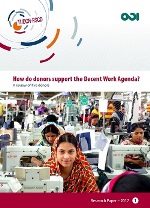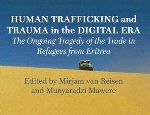Published on Fri, 2017-03-31 16:37
A very short time ago, the General Assembly granted Observer Status to the International Chamber of Commerce. This means the institution, which represents the interests of the biggest multinational corporations, will be able to sit in every session and even get the chance to speak, far more opportunities than what the civil society has. This event can be understood as yet another step in the process of consolidation of a huge influence of the corporate sector into the setting of the development agenda. Within the UN, the influence of the corporate sector, as well as of private interests, has risen non-stop. From the late 90s promotion of Global Compact, to the more formal or informal participation of corporates representatives and philanthropists in SDGs discussions, their views are embedded in the development discourse. As Adams and Martens (2015) points out, there is “a growing reliance on corporate-led solutions to global problems”, which denies that in the context of financialized globalization and the dominance of market self-regulation, the private sector contributes much more to the problems than to the solution. |
Published on Fri, 2017-03-31 16:13
A new TUDCN study by the Overseas Development Institute reviews the contribution of five donor countries to providing decent work in developing countries. Entitled How do donors support the Decent Work Agenda? - A review of five donors, this study assesses the various forms of support provided through Official Development Assistance by France, Japan, Sweden, the United Kingdom and the United States. Looking ahead, the study also includes recommendations on how to better track and evaluate these contributions in the future. The push to achieve decent work is gaining increased momentum within global development efforts. The 2030 Agenda illustrates this well by its recognition of the centrality of decent work in achieving sustainable development. While decent work constitutes a Sustainable Development Goal in its own right, the 2030 Agenda further highlights how the achievement of decent work underpins progress in many other key areas. |
Published on Thu, 2017-03-23 11:01
Over the past eight years, the G20 has emerged as one of the most prominent political fora for international cooperation. For transnational corporations and their national and international associations and lobby groups, the G20 process provides important opportunities to engage with the world’s most powerful governments, shape their discourse, and influence their decisions. For this purpose, business actors have created a broad network of alliances and fora around the G20, with the Business20 (B20) as the most visible symbol of corporate engagement. A new working paper published by Global Policy Forum and Heinrich-Böll-Stiftung maps out the key business players and associations from the different sectors and branches involved in the work of the G20, and analyzes their core messages and policy recommendations. |
Published on Fri, 2017-03-17 15:15
The economic empowerment of women is the priority theme for the 2017 UN Commission on the Status of Women with special attention to the empowerment of indigenous women. The struggle to empower women and to combat gender inequality goes hand in hand with the struggle for women’s human rights. The increasing application of human rights instruments from local to global continues to be the hallmark of organizing that crosses sectors, policy tracks and borders. The work of human rights advocates and defenders has required establishing new rules and systems as well as removing discrimination and bias in the application of existing ones. This is as relevant across territorial borders as within them and the gap between transnational economic activities and global economic governance can magnify inequalities or nullify measures to overcome them. As economies are operating across or without borders so too must the human rights instruments and frameworks - the norms and standards that apply equally to the powerful and powerless. |
Published on Thu, 2017-03-16 21:01
The book entitled "Human Trafficking and Trauma in the Digital Era: The Ongoing Tragedy of Trade in Refugees from Eritrea" sheds new light on the thriving business of human trafficking for ransom with severe torture practices, also named Sinai trafficking, and traces back its origins. It presents the findings that show how money is made with the smuggling of Eritrean refugees and how the booming business runs with inhuman practices such as violence, hostage situations and torture. This comes with a detrimental effect to the Eritrean community, which suffers collective trauma due to bearing witness to abuse of family members and fellow nationals through mobile phones and digital social networks. |
SUSCRIBE TO OUR NEWSLETTER







